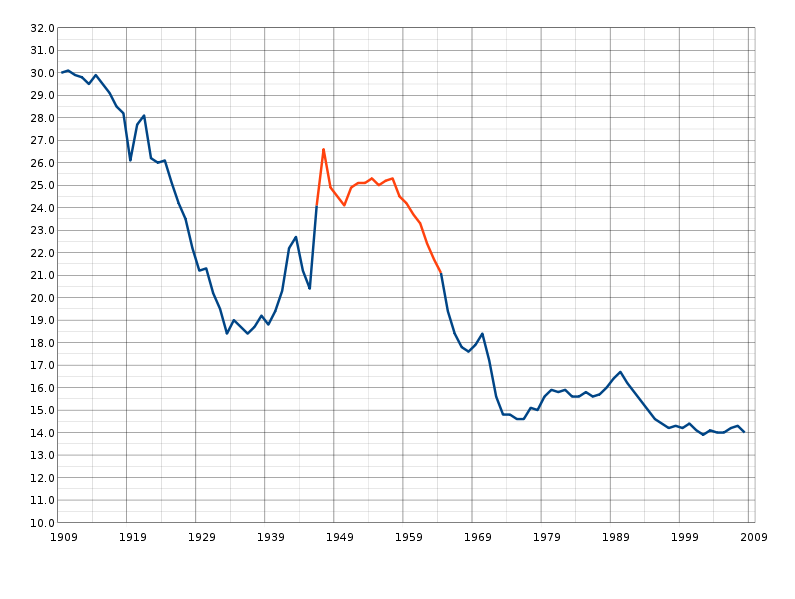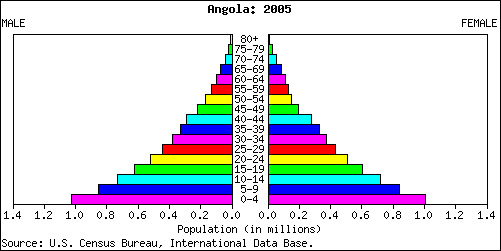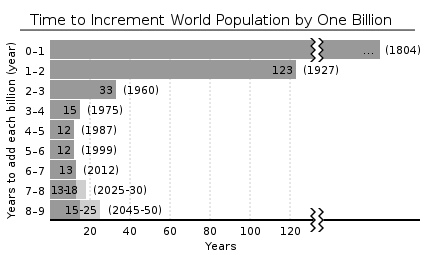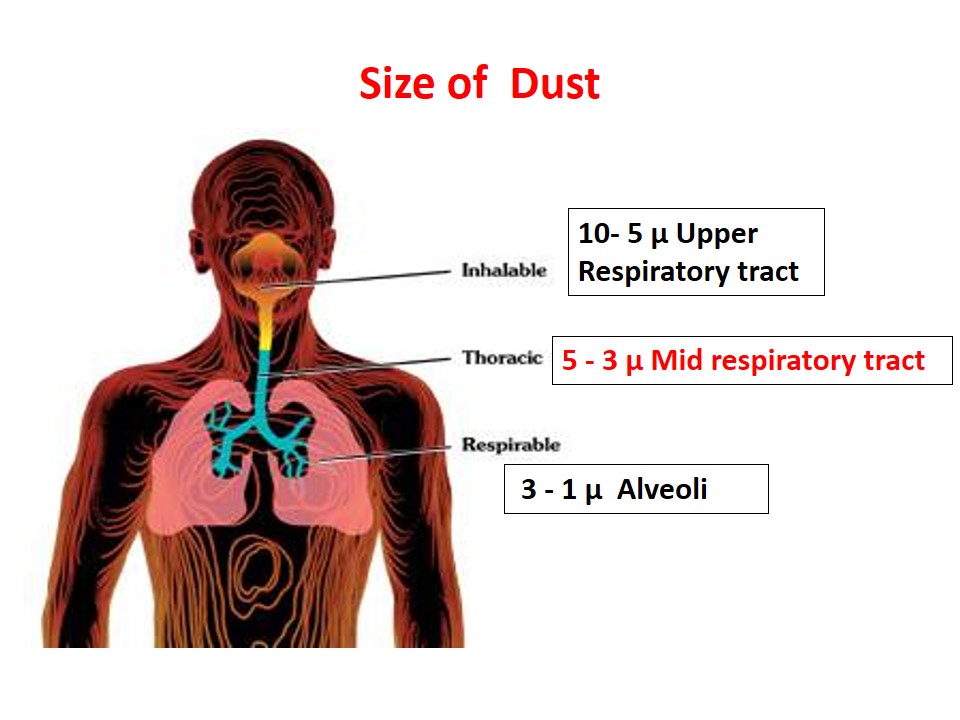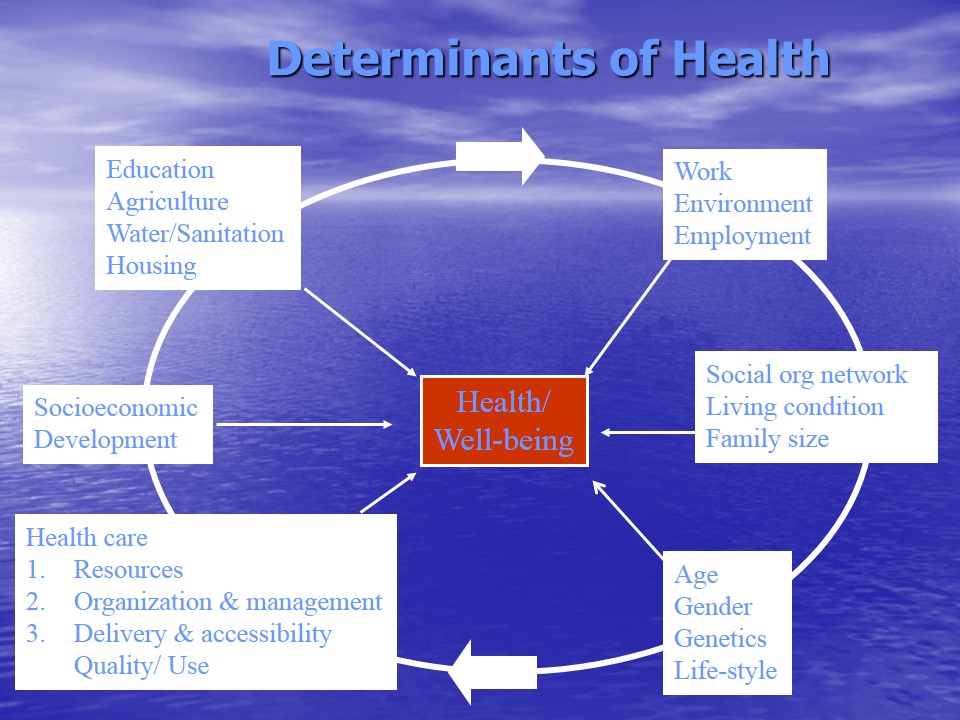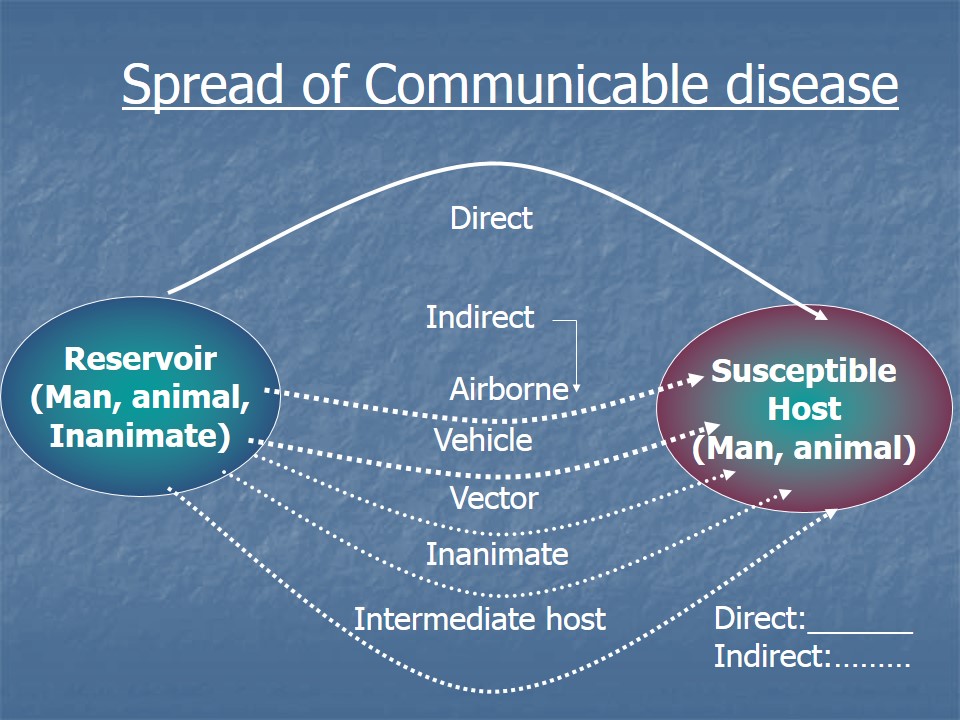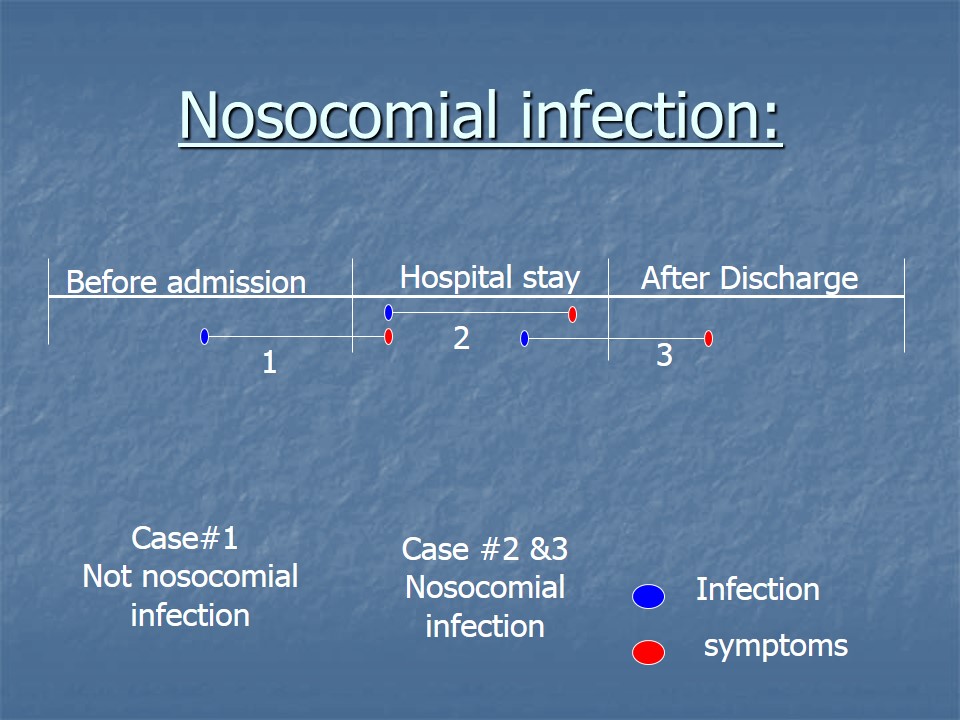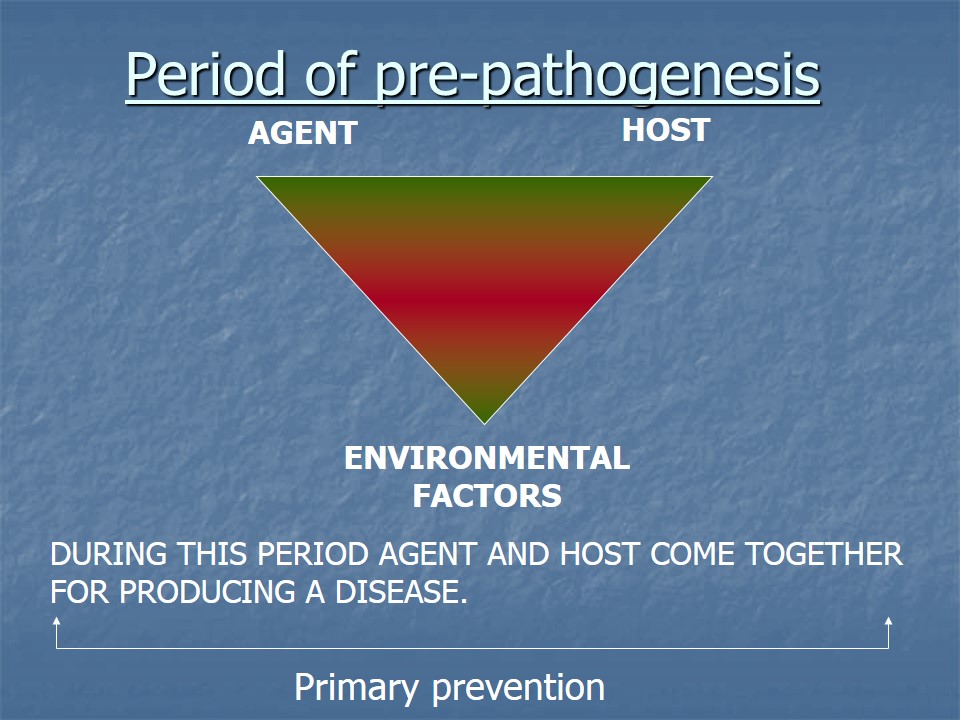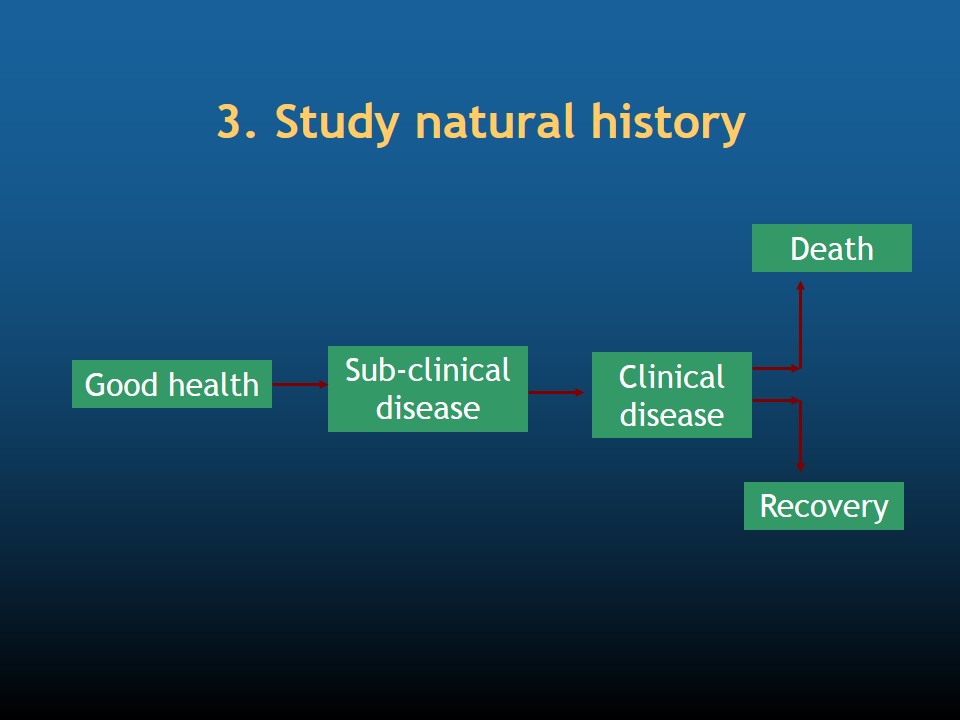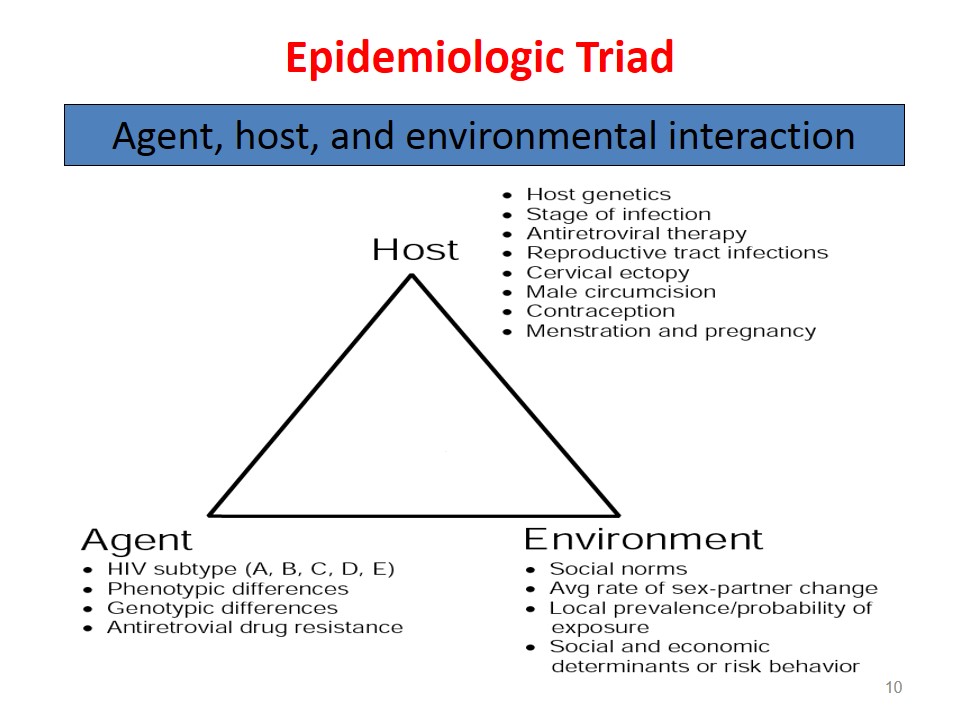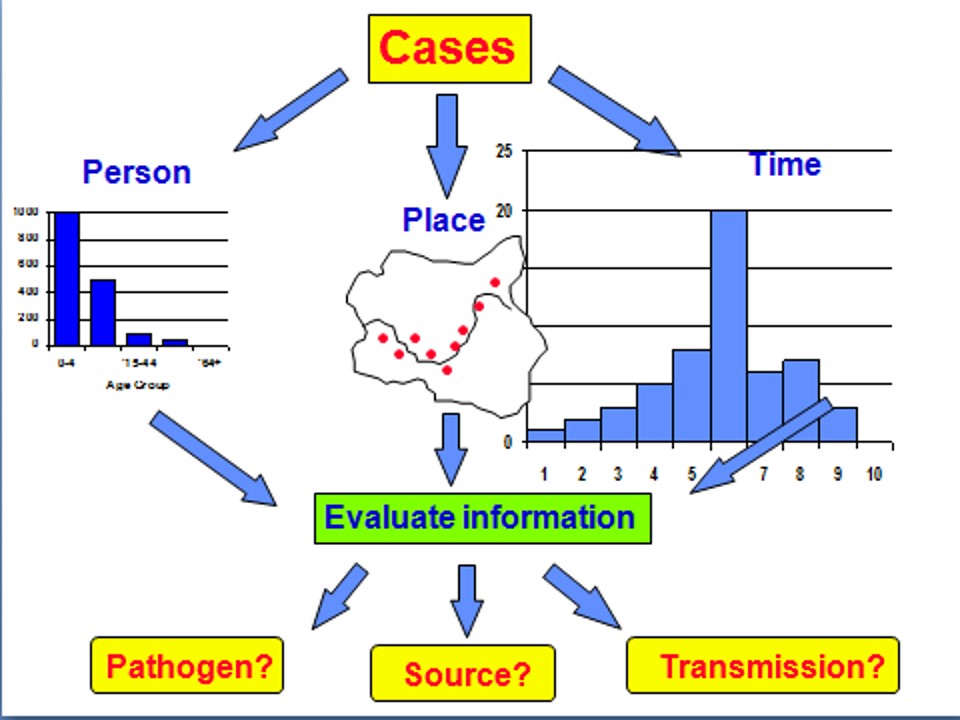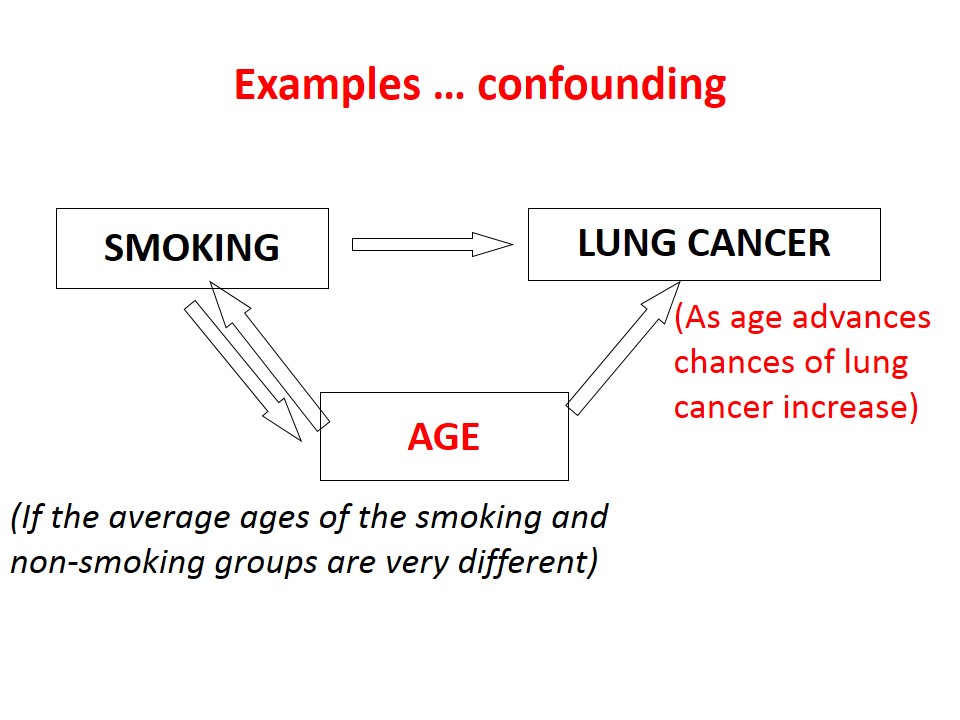Many definitions of health exist. These include: The condition of being sound in body, mind or spirit, especially freedom from … Read More »
Disease Transmission and Control
Disease control involves: Surveillance Eradication Control Quarantine Segregation Isolation Disinfection Sterilization Surveillance: Surveillance of disease is the continuous scrutiny of … Read More »
An Introduction to Infections
Infections may be: Nosocomial Cross Infections Infestation Epizootic Enzootic Zoonosis Exotic Opportunistic Nosocomial infection: An infection occurring in a patient … Read More »
Phases in Infection and Spread of Disease
Phases in infections The different phases in infections include: Infective period Communicability period Incubation period External Incubation period Prodromal Period … Read More »
Infectious Disease Epidemiology -An Introduction
Infection The entry and development or multiplication of an infection agent in body of man or animal is called infection. … Read More »
Prevention of Dengue and Malaria
Dengue Prevention Strategy 1. Reduce mortality by 50% by 2020 – by early detection and prompt treatment of cases through … Read More »
Epidemiology -An Introduction
Epidemiology is the study of the distribution and determinants of diseases or states in population groups and the application of … Read More »
Causal Concepts
According to Rothman: Any event, act, or condition preceding disease or illness without which disease would not have occurred or … Read More »
Investigation of Epidemic
Epidemic is the unusual occurrence in a community or region of disease, specific health-related behavior (e.g. smoking) or other health … Read More »
Bias in Research Studies
What is Bias? An error in sampling or testing that systematically under- or over-represents one outcome (answer) over the other. … Read More »
 howMed Know Yourself
howMed Know Yourself
